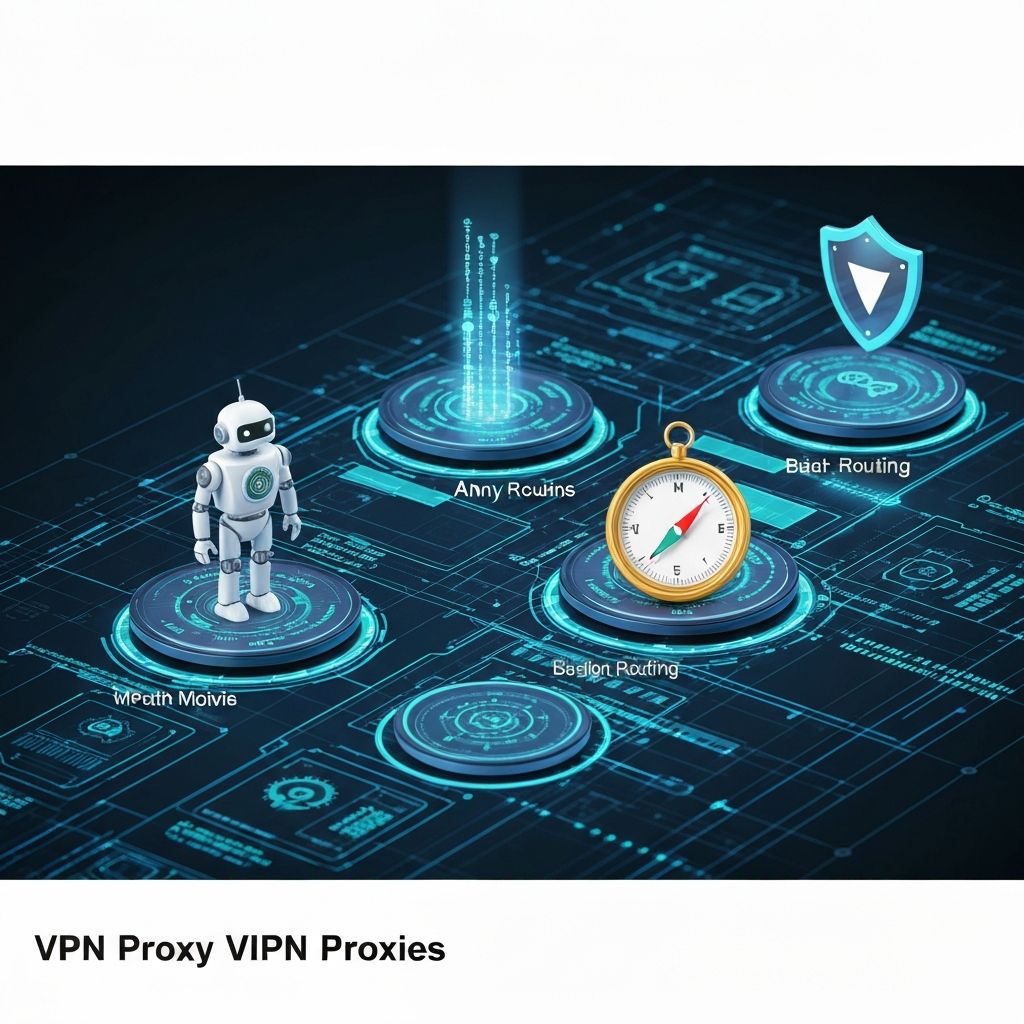VPN vs Proxy: What's the Difference and Which Should You Use?
Understanding the Core Differences
In today's digital landscape, protecting your online privacy has become more important than ever. Two popular tools for enhancing your online security are VPNs (Virtual Private Networks) and proxies. While both serve to mask your IP address and enhance privacy, they work quite differently and are suited for different purposes.
What is a Proxy?
A proxy server acts as an intermediary between your device and the websites you visit. When you use a proxy, your requests are routed through the proxy server before reaching the target website. The website sees the proxy's IP address instead of your actual IP.
Key characteristics of proxies:
- Works at the application level (typically for web browsers)
- Can be free or paid
- May not encrypt your traffic
- Faster than VPNs due to less encryption overhead
- Limited to individual applications or browser sessions
What is a VPN?
A VPN creates a secure, encrypted tunnel for all your internet traffic. Unlike proxies, VPNs encrypt everything you send and receive, providing a much higher level of security and privacy.
Key characteristics of VPNs:
- Works at the system level (protects all internet traffic)
- Encrypts all data with military-grade encryption
- Requires a paid subscription for quality service
- Slightly slower due to encryption overhead
- Protects all applications and devices
Proxy vs VPN: Side-by-Side Comparison
| Feature | Proxy | VPN |
|---|---|---|
| Encryption | Not always encrypted | Full encryption |
| Speed | Generally faster | Slightly slower |
| Coverage | Application-specific | System-wide |
| Setup Complexity | Simple | Very simple (with apps) |
| Cost | Free or cheap | Typically $5-15/month |
| Security Level | Moderate | High |
When Should You Use a VPN?
Use a VPN if you:
- Want complete protection for all your internet activity
- Use public WiFi frequently
- Need strong encryption for sensitive data
- Want consistent privacy across all applications
- Need to access content from different regions
When Should You Use a Proxy?
Use a proxy if you:
- Only need to mask your IP for specific web browsing
- Want faster browsing without encryption overhead
- Need to access region-restricted content occasionally
- Have bandwidth constraints
- Only need privacy for certain applications
Conclusion
For most users seeking comprehensive online privacy and security, a VPN is the better choice. It provides complete protection across all devices and applications with strong encryption. Proxies are useful for specific use cases where you only need to mask your IP for particular applications.
Ready to choose the right VPN for your needs? Visit SecureBrowse to explore our comprehensive VPN comparisons and find the perfect solution for your privacy requirements.
Last updated: November 2025
Have questions about VPNs? Check out our VPN comparison tool or explore current VPN deals.
